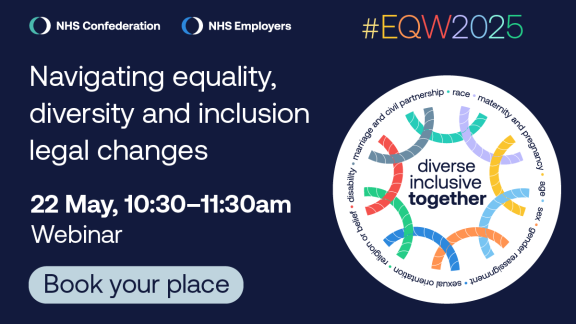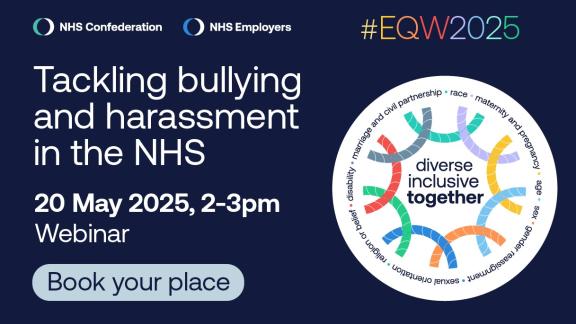Using NHS Staff Survey data at local level: improving equality

Steven Weeks is policy manager at NHS Employers and leads on the NHS Staff Survey. In this blog, he looks at how the latest set of results can be used to improve equality within organisations.
The NHS Staff Survey provides in depth data that can be used to inform work on staff experience at local level. There are overall results by top level theme, by sub theme and at individual question level. For People Promise related indicators these are benchmarked so that organisations can see how they compare with peers.
There has been an extension this year of the data available to under the experience of different groups of staff. Alongside the main report, trusts get a report on selected indicators that are used as part of the Workforce Race Equality Standard (WRES) and the Workforce Disability Equality Standard (WDES). These reports show the relative scores of ethnic minority and disabled staff compared to other colleagues. The focus is on questions related to discrimination, bullying and career progression.
In addition to these already analysed reports, there is also now an interactive tool on the NHS Staff Survey centre website which enables analysis of all questions by all equality characteristics.
For the first time this enables analysis of the experience of LGBTQ+ staff on all indicators. All trusts should be looking at this data to address inequities in experience. The national data demonstrates a poorer staff experience for LGBTQ+ staff on almost all indicators. Analysis of local data is an essential step in ensuring equality for all staff. Initial analysis by NHS Employers has identified considerable variation between employers. Results can be broken down by sexual orientation and gender identification and experience does vary by category.
The interactive tool also provides the opportunity to go beyond the indicators included in WRES and WDES and look at experience across all indicators. Analysis also possible by age, religion, and caring responsibilities.
Feedback from colleagues demonstrates that BME, disability and LGBTQ+ staff networks have provided support for staff, and where these networks have been involved in shaping work on staff experience, we have seen positive outcomes.
As we know, staff networks are a key mechanism for driving meaningful change and making a difference, as well as empowering people with the opportunity to grow personally and professionally. They provide a critical forum for individuals to come together, share ideas, raise awareness of challenges and provide support. The NHS Staff Council Equality, Diversity and Inclusion Group has produced a good practice guide around staff networks and partnership working.
There is also a new podcast published on National Staff Networks day and as part of Equality, Diversity and Human Rights Week, the podcast features chairs and co-chairs of the NHS Confederation’s EDI leadership networks. It also highlights the benefits and value of staff networks, and why they are needed now, possibly more than ever, to support the health and wellbeing of our diverse workforce.



